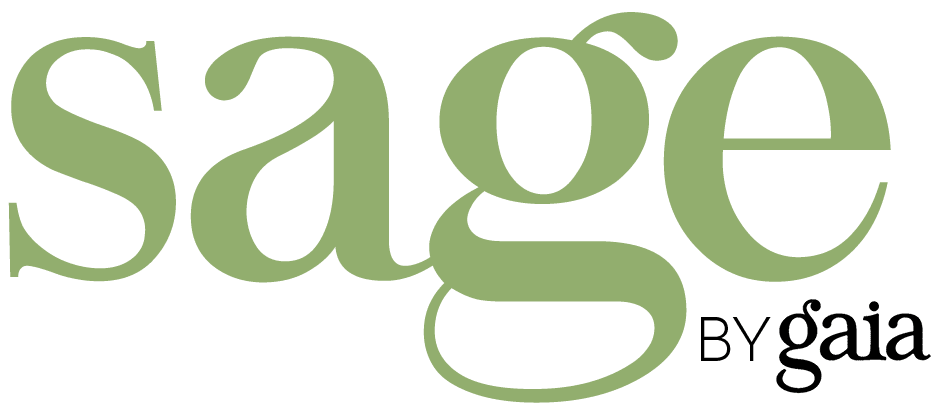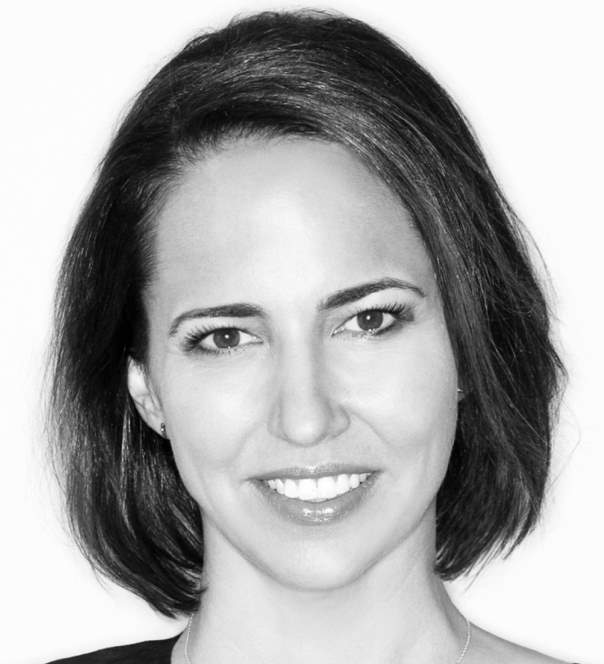Dr. Leslie Fuller is a naturopathic physician and 2009 graduate of National College of Natural Medicine (now National University of Natural Medicine). She is a dedicated educator and Associate Professor in the Clinical Sciences Department at the University of Western States. She is also an Adjunct Clinical Faculty at NUNM, where her clinical teaching and patient care focuses on management of neurologic conditions and application of parenteral IV therapy. Her work focuses on neurologic wellness, sports medicine, disability awareness and IV therapy.
I was thrilled to have the chance to speak with her on a recent morning (after her daily hour-long walk with her dogs) to ask her about her current practice and research, natural medicine and neurological disability, the long standing effects of COVID on the brain, and how Zoom is re-wiring the way we learn.
Anne Can you tell me a little bit about how you came to do what you do and what inspired you to pursue this profession?
Leslie When I was in undergrad, I worked for a company for three years called World Wheelchair Sports, where we helped kids in the Eugene, Oregon area get involved in their high school athletics. These were mostly kids who had physical disabilities, cerebral palsy or spinal cord injury or traumatic brain injury or other neurological conditions. And I got to see how broken the system is for rehabilitation, specifically around neurological conditions and neurological disability. And I just started thinking, I want to find a different way to do this. I got really passionate about it, and through that exploration, I looked at other health professions, but ultimately it was really the philosophy of naturopathic medicine that just got me really excited.
Anne Are kids with disabilities still a part of your clinical work or research?
Leslie I communicate and collaborate with two of the folks that I met 20 years ago. One is my old boss, who is a quadriplegic, and then I have another contact from that time, who talks in some of my academic classes about how to approach and discuss disability. It’s one of my biggest advocacy and passion points. We have a lot of DEI training in all of our different worlds right now, but it very rarely includes disability education, and that’s a huge passion point for me. I work with patients who are quite disabled. I’m not a part of any affiliated group, but I try to advocate for disability groups in my teaching and in the clinical realm.
Anne Did you always know you wanted to pursue health as a profession?
Leslie Not necessarily. I wanted to be a marine biologist up until I went to undergrad. I’ve always been really thrilled with all things biology, and I still love sea creatures, but ultimately I also love humans. Integrative medicine allows for both the exploration of the human body as well as plants. And so it’s a really cool combination of those two biological pieces that I’ve always been thrilled by. I’ve always been a science nerd.
Anne Can you talk a little about what you’ve learned about the connection between naturopathic medicine and the brain?
Leslie I think we’re learning more and more. I think 20 years ago, when I started into this pathway, it was siloed and split apart. And now I think that more and more evidence and more research is coming out that shows us brain health is really whole person health. And ultimately, I love this idea of whole person wellness. And your brain that’s in your head is bettered by so many of our lifestyle changes that we can make. And then specifically I see multiple sclerosis, Parkinson’s disease, Alzheimer’s patients, some of these really either common neurological conditions or very unique neurological conditions. And each of them in their pathology goes back to those same principles of antioxidants, mitochondrial deficits, even probiotics, and just some of these pieces that really indicate that the way we treat neurological conditions with these specific pharmaceuticals isn’t curative or isn’t preventative, and that it’s really the holistic looking at the whole body and approach that might better those conditions overall and better our prevention strategies.
Anne How do you spend your professional days right now? Are you seeing patients? Are you doing research, or a combination of both?
Leslie I work at two different universities. One is the University of Western States and one is the National University of Natural Medicine. NUNM is one of the oldest naturopathic schools, and I went there and have worked there more or less since graduating. I run a neurology specific clinic shift that incorporates intravenous therapy. I see about 20 patients every Thursday. I have student interns and residents that work with me in a clinical practice. And then at UWS, I educate chiropractic students on fundamentals of primary care health. So I have this dual role of clinical practice in neurology as well as fundamental primary care considerations like lab testing and pharmacological principles that I teach the chiropractic students.
 Sleep plays a vital role in our overall well-being.
Sleep plays a vital role in our overall well-being. Anne What is intravenous therapy?
Leslie There’s a whole type of treatment strategy called intravenous or parenteral medicine, and it’s really just putting vitamins and minerals into an IV bag and supplementing it that way. So it’s phenomenal for some of the conditions you might expect, like gastrointestinal compromised folks who have really bad IBD or IBS. Their absorption is totally blocked and it’s really hard to get it orally no matter how many supplements we jam into the body. On the flip side, we also use it in a similar manner to pharmaceutical use. So I can put magnesium or vitamin C into a patient’s body and it gets in at such a higher rate and dosage that it’s able to do its biochemical work without having to go through all that digestion and absorption and the liver processing.
Anne Are there people aside from IBS and IBD patients for whom that therapy works well?
Leslie I have a little bit of a niche practice. I’d say most of my folks have some type of neurological compromise. So fibromyalgia, spasticity from some of our higher level Parkinson’s or ALS types of patients. It’s really kind of specific therapies or specific symptoms within those condition brackets that might benefit from IV vitamins and nutrients, based off of the pathological process. And then right now, I’m just seeing an influx of post-COVID folks with neurological consequences. And since we don’t have a lot of research backing to stand on, it’s a little bit of a no man’s land regarding how do we help these folks? How do we get them better?
Anne Do you mean people like myself (and I’m only self-diagnosed) who might have some lingering brain fog from COVID?
Leslie Absolutely. I’m working with a colleague in Seattle and we’re doing this huge deep dive into all of post-COVID to try and understand it. Ultimately they’re kind of dividing it into a couple different symptom brackets. So, neurological consequences are things like you just mentioned, like brain fog and people who don’t have their smell and taste back, we even see that they’re missing or having some parts of their autonomic nervous system impacted. And then there are folks who have gastrointestinal consequences, or long-standing pulmonary consequences, all because of how big that virus was and how much destruction it caused.
Anne Is this research that you’ve designed?
Leslie No, not self designed or formal research: we’re looking at all of the research that’s out and recently published focused on what’s happening within that virus and the pathology that it causes, and and looking at what we know about our natural therapeutics. Two and a half years in, we’re starting to see there are studies that are looking at carnitine, probiotics and other therapeutics. So it’s really just staying on top of our databases and pulling it into our shared documents and saying, look, this is super impactful. So we can have a little bit of research underpinning to provide some guidance for the therapies that we’re providing for patients.
Anne Wow. When you say you are a niche practice, are there other people in the country or the world who are doing this kind of work?
Leslie Especially for post-COVID, I think everyone is doing it everywhere, but mostly in a silo, just because we don’t have a huge group working on this all together. I’d say naturopaths are probably getting a huge chunk of these patients simply because there isn’t a set protocol after acute care in the hospital. There are some great post-COVID clinics that have popped up, but ultimately they’re few and far between for right now.
Anne What are some of the biggest ideas or learnings that have surprised you or that have come about in your field since you started?
Leslie I would approach that question the other way. Some of the pieces that those of us who are embedded in the Complementary and Alternative Medicine world believe are common sense are now just cropping up in the research in a meaningful way. And that’s really gratifying. Two years ago I went to a migraine continuing education course through Stanford and one of the biggest breakouts was focused on nutritional interventions. And so it feels almost as if medicine’s doing this full circle, coming back around. We witnessed a really specified pharmacological direction or angle for 20 or 30 years, and now we’re coming back around to say, oh, all that lifestyle stuff also has to be in place. So for me, that’s the most gratifying. I started on this pathway watching multiple family members be a part of broken medical systems, whether it was patients with opiate medications, or whatever else, and seeing how fractionated things got. So, I wouldn’t say those full-circle moments are my a-ha moments; they’re more like fist pumps. This is what we’ve been doing for and saying for so many years! To see, now, oh my gosh, we have these holistically trained pain clinics. We have a great pain clinic up in Oregon where they work on sleep and stress management. And it’s in those moments when I want to say, “Well, no, duh, of course we need all of that too!” That’s the most gratifying.
Anne Can you talk a little more about the relationship between sleep, stress management, and pain?
Leslie Well, sleep and stress management, or getting enough sleep as well as continually grappling with one’s level of stress, both of those are known to have a major impact on a lot of our neuro conditions, including pain and cognition issues.. So whether they’re causing an inflammatory state in the brain or whether they’re causing our stress hormones to react, if stress is through the roof and sleep is in the toilet, those are two contributors I’d say to most neurological considerations, whether it’s causing the disease or exacerbating it.
Anne How would you guide people who are looking to bring more naturopathic medicine and preventative measures into their life to start?
Leslie I’m a ‘basics’ practitioner; that’s how I label myself. So really, when I think about some of the fundamentals of nutrition, sleep and stress management, and then daily movement or daily exercise, that’s where I start with most people. If I jump in way up top and I start talking about we need to put 25 supplements into you and that’s going to make things better, it usually doesn’t tail out very well. Somebody’s spending a bunch of money and maybe they don’t have that strong base. So the entry is always the conversation regarding what do all these different pieces look like—what are the legs to the table? How supported is your base? There are going to be times where maybe a patient who has an ALS diagnosis is going to have an incredibly high stress load because it’s a very stressful condition, stressful for everybody in the family. So can we remedy, can we work on that giant leg of the table by doing specific supplementation or what are the pieces of the other foundations of health that we might be able to bolster in the face of one of those being really out of alignment?
Anne You’ve talked about diet, exercise, sleep, reducing stress, and maybe those are the answers, but what are some things we can do to help maintain the health of our brains as we age?
Leslie All those basics need to be in check. But if one is, if sleep is really unattainable, this is where I start to then get into this idea of supplementation and how do we support somebody’s brain. The number one thing I talk to my patients about, which is their most common leg of the table that’s out of whack, is stress. And it’s been really exacerbated in the last couple years because of the pandemic. If that’s just not manageable appropriately because life won’t let us, that’s where we can start to add components in. If those pieces are not in check, that’s where we start using more strategic supplementing with fish oils or turmeric or lion’s mane, all of these different things that might be known to support brain function.
Anne I know we’ve all had increased stress these past few years. I mean, sometimes I think I can actually feel the stress running through my veins. Is that something that I actually can feel? Is that cortisol shooting through my veins?
Leslie I mean it might be. The brain unfortunately is not so easy as stress leads to X, Y, and Z. I think all of us are going to have a little bit of trauma left over from this pandemic. I mean those of us with kids certainly do, right? We have to manage a 12-year-old’s online school and then get back to your Zoom meeting. That’s the stress we are never going to be able to undo. I think there are little trauma circuits or little reminder circuits that we keep. So, when you’re saying the stress is running through my veins, that very well might be. Who knows what happened in the last two years that rewired your brain. And then, if one of those is a stress loop, of course your adrenals are going to shoot out your cortisol.
Anne Do you think all this Zooming is changing our brains?
Leslie I do. Yes. I think we’re all going to be really different learners and listeners from here on out. I’m preparing a Continuing Education presentation and they want me to talk for 75 minutes, and I just thought nobody’s doing that anymore. We are learning in soundbites at this point, and so I’ve chopped the lecture up into five 15 minute mini presentations, because I don’t think our brains are wired to sit and listen for that long anymore, especially in a video world.
Anne Can I ask you a little bit about your own health practices? What’s your morning routine? Do you rely on certain exercises or practices, or anything else?
Leslie So all those elements that I mentioned, I keep in check. I do daily movement. I am not a great meditator, as I have kids and dogs and it’s just hard creating that quiet time, but I’m a meditator while I walk, so I walk often. I walk every morning at 4:00 AM. I walk in my neighborhood when it’s pitch dark with my dogs and it’s my time to really get my thoughts wrapped around my day. That’s my mindfulness time. And we’re about 90% healthy eaters. That’s pretty challenging with little kids, but we have a whole foods based diet and we really emphasize low sugar. So I’d say the base of my pyramid is pretty much in check all of the time. Sleep gets a little taxed with little kids and a full work schedule, but I try to bolster it with all the other components. My approach is really similar to what I say to my patients: We’ve got to get that base in check. I am really radically benefited by daily movement or exercise, so it’s easy for me to do it. I know that’s a major hurdle for a lot of my patients. So we have to find that daily movement, and talk about the purpose of it, rather than just say you have to exercise for weight loss. There are so many other phenomenal outcomes.
Anne I know some of them, but can you discuss the benefits of daily physical movement? Because I myself know it when I do it, but it’s still really hard to incorporate into my life.
Leslie Sure, and I’m also biased. I was a personal trainer all the way through medical school and into my residency. I had a company called A Fuller Life, and that’s how I paid my bills all the way through medical school. But outside of the idea that you have to work out if you want to lose weight, I think it’s much more encompassing. It stimulates your circulation and gets proper blood flow to your brain. There are all these positive neurochemicals that are produced that really help us combat our sedentary lifestyle. The benefits of exercise far outreach our idea from 20 years ago that we all just need to be skinnier. It’s so much bigger than that, and it doesn’t have to be the hardcore idea that you go to the gym and work out. It can be daily Tai Chi, it can be stretching on the floor, whatever it is. Just making sure that your stimulation and circulation is activated on a daily basis is important for healthy living beings.
Anne Maybe it’s because of what we’ve all been through with COVID, but it seems to me like the whole world is turning towards a more holistic approach to health. Nutrition, movement and sleep have all become hot topics in the past few years. Would you agree?
Leslie I live in a bubble, so I have to be biased, right? Because it’s always a part of my professional culture and a lot of my colleagues and I have been kind of banging that drum for a long time. And then my clinical practice and my patient flow is just back to back to back. So I would assume some of that might be exactly what you’re noting. There’s a higher awareness. I’ll add a caveat that COVID is such a novel condition that we all experienced together where we didn’t have primary treatments and we don’t really know how to clean up the outcomes. And so it really brought in, in real time, this idea that, oh, we don’t have one single pill for this thing. Everybody had to experience this idea that, Oh there isn’t an instant cure or an instant fix, like we see in the pharmacy world. So maybe that’s a piece of it. We all navigated this together. We learned pretty darn early that if you have a diabetic comorbidity, your outcomes are going to be worse, and that can be managed with diet and lifestyle. So yes, I would think that there’s a little bit more awareness, but we also experienced this thing that didn’t have a cure for the first time. So that’s pretty revolutionary, I think, for medicine.



